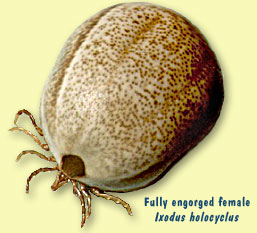
Heartworm live in the heart and major blood vessels of infected dogs.
How do dogs get heartworm?
Female heartworm produce millions of young, or microfilaria, which live in the bloodstream. Mosquitoes ingest microfilariae when they bite an infected dog.
The microfilariæ develop further in the mosquito. When the mosquito bites another dog it injects larval heartworm. These larvae migrate to the heart and adjacent vessels over a few months, and grow to adult heartworm.
Usually dogs do not show outward signs of infection for a few years.
How do heartworm affect dogs?
Adult worms:
Adult worms clog the heart and the major blood vessels leading from the heart. They stop the heart valves from closing and reduce blood supply to the rest of the body.
The most obvious signs are: a soft, dry, chronic cough, shortness of breath, loss of stamina, and weakness, especially after exercise. Heavily infected dogs may faint.
Sometimes we hear heart murmurs or abnormal lung sounds with a stethoscope. In advanced cases the abdomen and legs swell with fluid accumulation. Weight loss, poor condition, and anaemia develop with a chronic infection.
Severely infected dogs may die suddenly during exercise or excitement.
Microfilariæ (Young worms):
Microfilariæ circulate throughout the body but prefer small blood vessels. Because they are as wide as the vessels, they may block blood flow to vital organs such as the lungs, liver and kidney.
How do we prevent heartworm?
Annual injections of Proheart SR-12, or monthly tablets such as Heartgard or Proheart, or spot-ons such as Advocate or Revolution all kill larval heartworm before they reach the heart.
Before starting a preventative we run a blood test in the surgery to check for any existing infection.
If we detect an existing heartworm infection an effective treatment is available. Before admitting an infected dog for treatment we screen for damage to the liver, kidneys, heart and lungs to reduce the chance of complications.


 Dogs play an important part in many of our lives. With proper training from an early age, they can learn to interact with people in a positive way.
Dogs play an important part in many of our lives. With proper training from an early age, they can learn to interact with people in a positive way.






